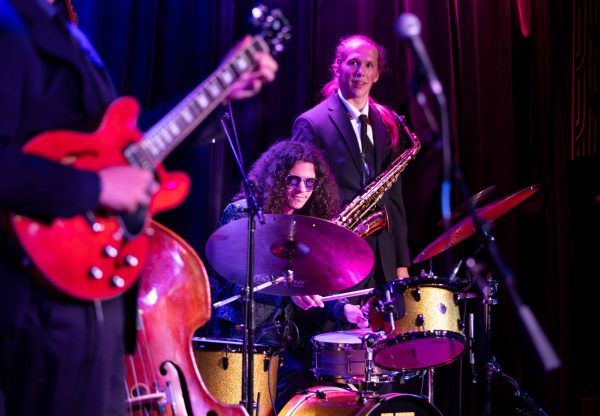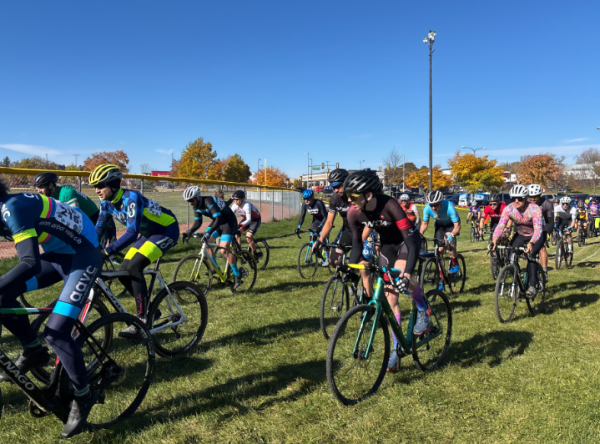Undocumented and Unafraid: Locals Rally for Immigration Reform
More than 100 people and dogs gathered September 6 in front of the United Bethlehem Church of Christ in downtown Ann Arbor for the Step Out for Child Justice demonstration in support of immigration reform. On the church’s steps, songs, poetry, and speeches (all in both Spanish and English) from activists and immigrants both documented and undocumented focused on US immigration law, foreign policy in Central and South America, and racism.
The rally, organized by the Washtenaw Interfaith Coalition for Immigrant Rights (WICIR) drew attention to the treatment of people of color both inside and outside American borders. “We want President Obama to step up and enforce an executive order to stop the deportation of immigrants, especially immigrant youth and their families and across the board we need to stop criminalizing black and brown youth and we need to stop militarizing the police.” said WICIR co-coordinator Laura Sanders. “We are also concerned by the surge of children than have come to our border from Central and South America. They are fleeing unspeakable violence that has been aided by US policies so we feel that we are in part responsible and should be protecting those children.”
From the church, participants marched chanting and holding signs through downtown Ann Arbor, ending in front of the Federal Building, where they joined hands and performed a spiraling “Dance for International Peace.”
Candidate for circuit judge and immigrant Veronique Liem attended in support of undocumented children and the children of undocumented parents. Liem, who moved legally to the United States from France and is now a citizen, hopes for that same opportunity to be available to others. Said Liem, “I’m in favor of giving people a path to citizenship, I don’t think it should be super easy but I think that for people who are already here, there should be a path.”
Emcee for the rally and recent Huron graduate Manny Lagunes’s own journey both geographically and through the US documentation system is what motivates him to activism. Lagunes came to the United States from Mexico at the age of nine. “I illegally crossed the border and was put in a detention center… all by myself in Texas,” he said. “I’ve witnessed people suffer because they are undocumented… I’ve been mistreated by various officers of [Immigration and Customs Enforcement] ICE… I was shot in my leg and that’s what I think about when I do this sort of thing,” said Lagunes.
Once in Michigan, he eventually found support from WICIR and recently became documented through the Obama administration’s Deferred Action for Childhood Arrivals (DACA) system, which allows children above the age of 15 who have been in the US for at least 9 years to live and work without fear of deportation for 2 years.
Lagunes said becoming documented has given him a voice, “I feel like I need to step in and help people who can’t really speak up, to speak for people who are afraid they’ll be target if they talk about being undocumented.”
Documentation may soon be available to many others in Washtenaw County who may not qualify under DACA. The Washtenaw ID project, an initiative developed over the past two years by a group of local activists, law professors, and county officials, would create a system through which any Washtenaw County resident, regardless of immigration status, could obtain official identification.
Sanders said the system would benefit more than just the immigrant community. “There are a lot of folks who don’t have adequate photo ID; the home insecure, elderly, and many people with mental illnesses or disabilities… have a hard time voting, getting a library book, getting health care, or renting something,” said Sanders. “[The Washtenaw ID project] will help people get bank accounts and in general live a better life here in our community.” She expects the proposal to go before the County Commissioner later this fall.
In the meantime, undocumented residents continue to face uncertainty on a daily basis. “They [ICE] come into our community and… deport undocumented people, many of whom have no criminal record, who have been here for a very long time,” said Sanders. “I think it’s wrong.”














